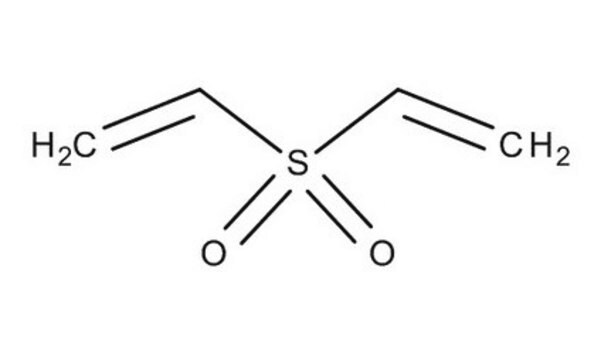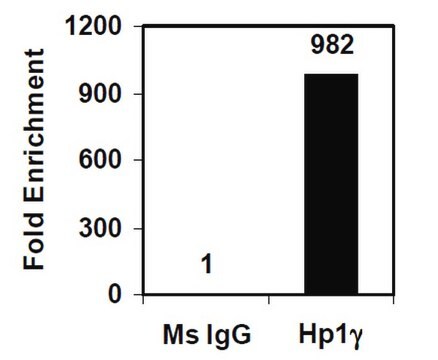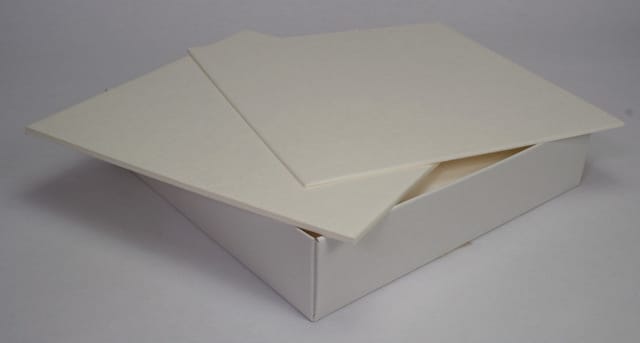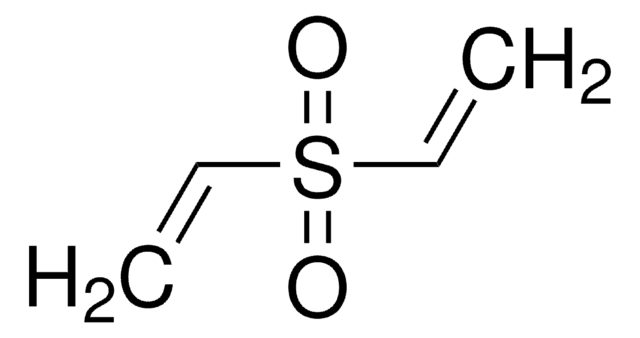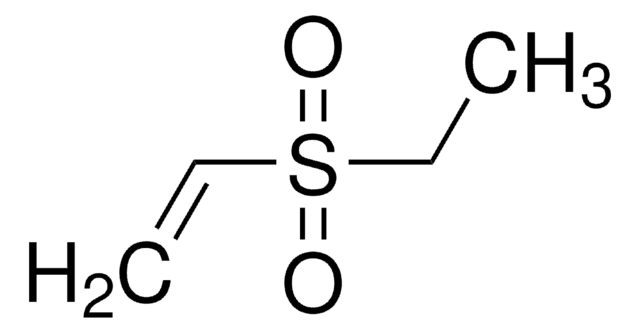180084
2,2′-Sulfonyldiethanol solution
60-65 wt. % in H2O
Synonym(s):
2-Hydroxyethyl sulfone
Sign Into View Organizational & Contract Pricing
All Photos(2)
About This Item
Linear Formula:
O2S(CH2CH2OH)2
CAS Number:
Molecular Weight:
154.18
EC Number:
MDL number:
UNSPSC Code:
12352100
PubChem Substance ID:
NACRES:
NA.22
Recommended Products
vapor density
5.5 (vs air)
Quality Level
vapor pressure
23.5 mmHg ( 20 °C)
concentration
60-65 wt. % in H2O
density
1.236 g/mL at 25 °C
functional group
hydroxyl
sulfone
SMILES string
OCCS(=O)(=O)CCO
InChI
1S/C4H10O4S/c5-1-3-9(7,8)4-2-6/h5-6H,1-4H2
InChI key
QQLILYBIARWEIF-UHFFFAOYSA-N
Application
2,2′-Sulfonyldiethanol was used as a cross-linking agent for poly(vinyl phosphonic acid) (PVPA).
Signal Word
Danger
Hazard Statements
Precautionary Statements
Hazard Classifications
Resp. Sens. 1
Storage Class Code
10 - Combustible liquids
WGK
WGK 3
Flash Point(F)
Not applicable
Flash Point(C)
Not applicable
Choose from one of the most recent versions:
Already Own This Product?
Find documentation for the products that you have recently purchased in the Document Library.
Customers Also Viewed
Richard T Pon et al.
Nucleic acids research, 32(2), 623-631 (2004-01-31)
New linker phosphoramidite reagents containing a cleavable 3'-ester linkage are used for attaching the first nucleoside to the surface of a solid- phase support. Inexpensive, underivatized amino supports, such as long chain alkylamine controlled-pore glass, can serve as universal supports.
R M Black et al.
Xenobiotica; the fate of foreign compounds in biological systems, 22(4), 405-418 (1992-04-01)
1. The metabolism of sulphur mustard, 1,1'-thiobis(2-chloroethane), in vivo was investigated following i.p. administration to rat. 2. Approx. 60% of dose was excreted in the 24 h urine. Many metabolites were present; nine have been isolated by h.p.l.c. and characterized
R M Black et al.
Journal of chromatography, 558(2), 393-404 (1991-10-11)
Two methods have been developed for the analysis of thiodiglycol sulphoxide, a metabolite of sulphur mustard, in urine. The first method recovers thiodiglycol sulphoxide from urine by extraction from a solid absorbent tube and clean up on Florisil. In the
R M Black et al.
Journal of chromatography. B, Biomedical applications, 665(1), 97-105 (1995-03-10)
Gas chromatography-tandem mass spectrometry (GC-MS-MS) with selected-reaction monitoring was applied to the analysis of urinary metabolites of sulphur mustard, derived from the beta-lyase pathway and from hydrolysis. In the case of beta-lyase metabolites, a limit of detection of 0.1 ng/ml
R M Black et al.
Xenobiotica; the fate of foreign compounds in biological systems, 25(2), 167-173 (1995-02-01)
1. Samples of urine from two human subjects accidentally exposed to sulphur mustard were analysed for metabolites derived from hydrolysis (thiodiglycol, thiodiglycol sulphoxide), conjugation with glutathione (1,1'-sulphonylbis [2-S-(N-acetylcysteinyl)ethane]) and from further metabolism of glutathione conjugates by the beta-lyase pathway (1,1-sulphonylbis[2-(methylsulphinyl)ethane]
Our team of scientists has experience in all areas of research including Life Science, Material Science, Chemical Synthesis, Chromatography, Analytical and many others.
Contact Technical Service



